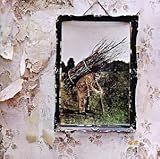
- アーティスト: Robert Plant,Alison Krauss
- 出版社/メーカー: Rounder / Umgd
- 発売日: 2007/10/23
- メディア: CD
- 購入: 3人 クリック: 12回
- この商品を含むブログ (24件) を見る
とある。ブルーグラスというのはケンタッキーの美称に由来するのか。
The Monroe Brothers were one of the most popular duet teams of the 1920s and into the 1930s. Charlie played the guitar, Bill played the mandolin and they sang duets in harmony. When the brothers split up as a team in 1938, both went on to form their own bands. Since Bill was a native of Kentucky, the Bluegrass State, he decided to call his band "Bill Monroe and the Blue Grass Boys," and this band sound birthed a new form of country music."Bill Monroe and the Blue Grass Boys" first appeared on the Grand Ole Opry in 1939 and soon became one of the most popular touring bands out of Nashville's WSM studios. Bill's new band was different from other traditional country music bands of the time because of its hard driving and powerful sound, utilizing traditional acoustic instruments and featuring highly distinctive vocal harmonies. This music incorporated songs and rhythms from string band, gospel (black and white), work songs and "shouts" of black laborers, country and blues music repertoires. Vocal selections included duet, trio and quartet harmony singing in addition to Bill's powerful "high lonesome" solo lead singing. After experimenting with various instrumental combinations, Bill settled on mandolin, banjo, fiddle, guitar and bass as the format for his band. The guitar originally came from Spain. The mandolin, as well as the fiddle and acoustic bass (both from the violin family), originally came from Italy.
http://www.ibma.org/about.bluegrass/history/index.asp
さて、T. Bone Burnettがプロデュースしたこのアルバムは、米国のカントリー、リズム&ブルース、ロックの名曲を集めたもの。これについて、Observerのレヴュー*4で、Neil Spencer氏は”the America I have always loved musically”というロバート・プラント自身の言葉を引用している。たしかにレイド・バックしているけれど、ロバート・プラントがこのような歌たちを歌うのは決して不自然ではない。サウンドにしても、レッド・ゼッペリンの特にフォーク・バンドとしての側面に惹き付けられた人ならばあまり違和感はないのではなかろうか。プラントはそもそもシャウトするよりは寧ろ喘ぐヴォーカリストなのだが、勿論、あの独特の喘ぎも健在である。私なんかよりも米国のルーツ・ミュージックに詳しい人はどう聴くのかな。
ところで、ロバート・プラントの女性ヴォーカリストとのデュエットというと、先ずは”Battle of Evermore”でのサンディ・デニーであり、”Down by the Seaside”でのトーリ・エイモスということになるが、サンディ・デニー姐さんとのデュエット・アルバムがリリースされるというのは既に不可能なこと。

- アーティスト: Led Zeppelin
- 出版社/メーカー: Atlantic / Wea
- 発売日: 1994/07/18
- メディア: CD
- 購入: 4人 クリック: 35回
- この商品を含むブログ (145件) を見る

Encomium: Tribute to Led Zeppelin
- アーティスト: Led Zeppelin
- 出版社/メーカー: Atlantic / Wea
- 発売日: 1995/03/21
- メディア: CD
- クリック: 3回
- この商品を含むブログ (12件) を見る
さて、『通俗歌曲』という雑誌の12月上半月号を買い、附録のCDを聴いてみる。以下、曲目と雑誌によるジャンルというかスタイル(風格)の分類;
Hang On the Box*9を除いて、みんな知らないぞ。最初の6曲が中国(香港を含む)のアーティストによるもの。I’m From Barcelonaは西班牙ではなくて瑞典のバンド、Subway To Sallyは独逸、Rurutiaは日本人アーティストで、あとは英国。
木瑪「Ta*5是黯淡星」(華麗揺滾)
Hang On the Box*6 ”No More Nice Girls”(Indie rock, Future rock)
The darlings*7 ”Rise”(美式揺滾、Grunge)
Golden cage “Bravadoes”(Funk rock)
冷凍街「気節」(英式揺滾)
双橙紀 “Jesus”(Indie)
Buffseeds “Sparkle Me” (Brit-pop)
I’m From Barcelona*8 “We’re From Barcelona”(Indie-pop)
3 Inches of Blood “Destroy the Orchs”(金属)
Vega4 “You”(Indie rock)
Subway To Sally “Puppenspieler”(民謡金属)
Rurutia「朱雀の空」(治癒系)
*1:Cf. http://d.hatena.ne.jp/sumita-m/20071119/1195435621
*2:http://www.alisonkrauss.com/site.php
*4:http://music.guardian.co.uk/print/0,,330925180-122425,00.html
*5:おんなへん+也
*6:http://www.myspace.com/beijinghangonthebox/
*8:http://www.imfrombarcelona.com/
*9:Cf. http://d.hatena.ne.jp/sumita-m/20061020/1161310409 http://d.hatena.ne.jp/sumita-m/20071019/1192766738